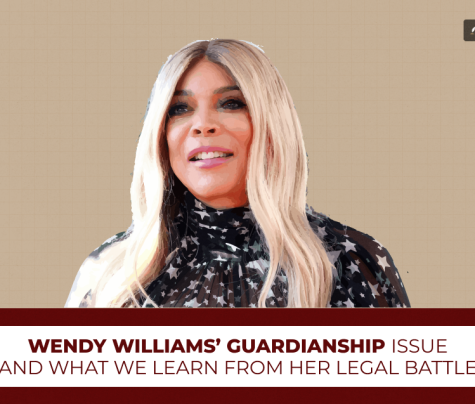
Co-parenting is not always a walk in the park. It gets even more complicated when you’re dealing with an uncooperative ex-partner.
This arrangement should be a collaborative affair, but when one parent contravenes your custodial agreement, the whole purpose of the cooperation is defeated.
While the guardianship agreement aims to simplify the responsibilities of caring for the children, this is not always the case for some families.
So, what steps should be taken if an uncooperative co-parent incessantly violates the child custody agreement?
Read this blog to learn critical and valuable tips on how to deal with a non-cooperative co-parent.
What is a Child Custody Agreement?
A child custody agreement, also known as a parenting plan or custody agreement plan, is a document that outlines the various key points of child custody, parenting time schedules, and parental responsibility.
These documents outline the legal and physical custody arrangements between parents or legal guardians when they are separated or going through a divorce. So, let’s see how to map out a legal child custody agreement.
- Making Co-Parenting Work
First and foremost, commitment, cooperation, and effective open communication are necessary for effective co-parenting. Here are some of the significant points you can go on with:
- Child First: Indeed, the emotional and physical well-being of the child must take priority over personal differences.
- Open Boundaries: Providing clear and consistent rules and expectations in both homes.
- Communicate Respectfully: Keeping conversations child-focused, respectful, and not hostile.
- Parenting Plan: Decide on schedules, holidays, and responsibilities before disagreements to avoid conflict.
- Stay Flexible: Life keeps happening, and you must adapt to maintain harmony.
- No Fighting in Front of Children: Never voice arguments before your child or children.
Benefits for Your Children
The unrealized worth of the children having one-on-one contact with both parents is terribly high as children develop, and some of the benefits of such co-parenting include:
- Don’t Stress Your Child: An effectively coordinated co-parenting arrangement reduces the children’s exposure to stress and emotional disturbance.
- Uniformity of Discipline: Uniform behavioral rules and expectations create a feeling of safety for the children and will help prevent confusion.
- Quality Relationship with Others: Good relationships in positive examples end up with the children developing better interpersonal skills from their parents.
- Higher Self-Esteem: Such kind of love and support from both parents adds to a child’s self-esteem.
- Enhances Academic and Social Growth: Getting through co-parenting is peaceful and brings children maximum concentration during their schooling and creates a close-knit friendship network.
Co-Parenting Tips
Co-parenting can be made easy by the co-parenting parenting tips as follows:
- Technology is Good: Use applications and shared calendars to split schedules and responsibilities.
- Respect Each Other’s Roles: Respectfully acknowledge that each parent has a role and what this means for each parent.
- Open-Mindedness to Compromise: Flexibility provides the best avenue toward positive collaborative co-parenting.
- In-counsel for Difficult Scenarios: Family Therapists and Mediators assist in handling difficult circumstances.
- Encourage your child to Establish Relationships with Both Parents: Do not let out negative things about the other parent in the presence of the child.
Even co-parenting is not easy; parents can create a loving and balanced space for their offspring through patience, mutual respect, and child-first thinking.
- Keep Things in Perspective and Communicate
Firstly, “uncooperative” can refer to a whole list of behaviors. Therefore, before categorizing the former spouse’s actions as such, ensure they are not just simple mistakes.
Further, the custody agreement may contain numerous details whose specifics may sometimes escape your ex-partner’s attention.
Take time to periodically communicate with your co-parent and review these details to spot and address any potential challenges.
What steps can be taken if a co-parent fails to address your concerns even after they’ve been communicated?
- Consider Mediation and Counseling
There is no doubt that the lengthy and often emotionally charged divorce process may harbor feelings of dislike and hatred between you and your ex-partner. This may bar any healthy communication.
If a dead end has been reached, seeking the help of an unbiased intermediary can help address any conflicts regarding custody obligations.
Mediation and counseling during the early co-parenting phase help create good communication skills, easing the co-parenting experience. It is here that you learn how to address and resolve disagreements.
You also understand how to prioritize your child’s best interest while accommodating your co-parent’s needs.
- Demand Compliance
Mediation does not guarantee the resolution of your familial dispute. If your former spouse refuses to adhere to the mediation resolutions, you have a right to demand compliance from them. A family attorney can help draft a letter to secure compliance.
The letter should quote the provision contravened directly from the custody agreement. It should also highlight the co-parent’s violation and ask that they comply with the provision.
For example, if a co-parent has refused to reimburse you for an expense when your agreement states you should recoup your money, you should demand compliance.
In most cases, the letter is expected to compel your ex to perform their obligations. But what if it does not?
- File a Motion in Court
“Your attorney may advise you to file a motion in court to compel your ex-partner to perform their obligations under the arrangement,” says attorney Matthew Dolan of Dolan Divorce Lawyers, PLLC.
Present any communication efforts to secure compliance and evidence of the persistent violation.
You should also include evidence of efforts by third parties to remedy the conflict. Doing this will prove you tried to address the conflict before resorting to the suit.
A family lawyer will draft the motion, ensuring it meets all legal requirements. They will also inform you of your rights and how to prioritize your child’s best interests.
Final Thoughts!
Dealing with an uncooperative ex can be a stressful experience when raising a child.
If the terms of a child custody arrangement are unclear, working with a qualified family lawyer may be beneficial. They will advise you on the legal avenues to secure compliance from your ex.
Creating a good child custody agreement is a good thing for both the parents and the children as well.
Since the child in question will have a better chance of dealing with the separation and the ongoing divorce proceedings. That way, the child has a good relationship with both the parents.
Read More:
- How to Get Full Custody of a Child as a Mother? [According to Experts]
- Can You Get the Guardianship of a Child Without Going to Court?











0 Reply
No comments yet.